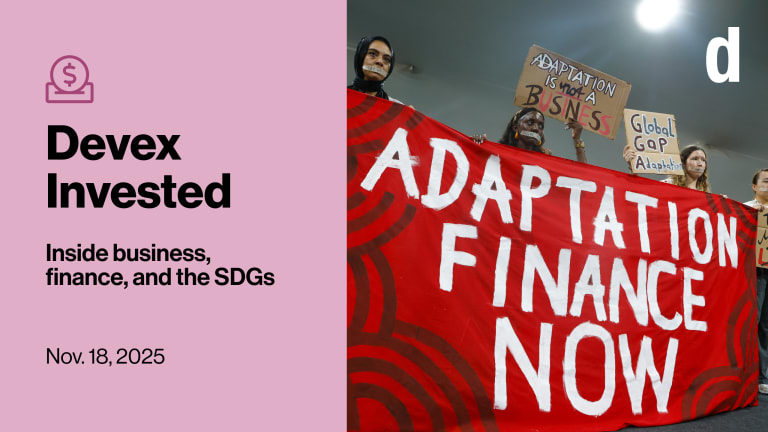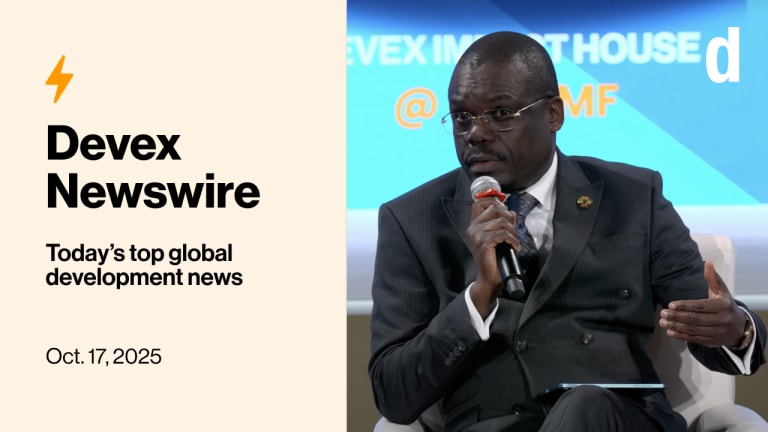Europe has “gone backwards” in its attempts to marry humanitarian and development aid and is failing “people in need,” the head of the International Rescue Committee has told an international conference.
David Miliband, speaking at the European Humanitarian Forum in Brussels, attacked the record of the so-called nexus — a 2017 European Union initiative to incorporate long-term development and private finance into its humanitarian relief work.
Miliband warned that humanitarian and development donors disagree on what they are trying to achieve when working together on the same problems, telling the audience: “Without clear and agreed outcomes, we're all sunk.”
This story is forDevex Promembers
Unlock this story now with a 15-day free trial of Devex Pro.
With a Devex Pro subscription you'll get access to deeper analysis and exclusive insights from our reporters and analysts.
Start my free trialRequest a group subscription







